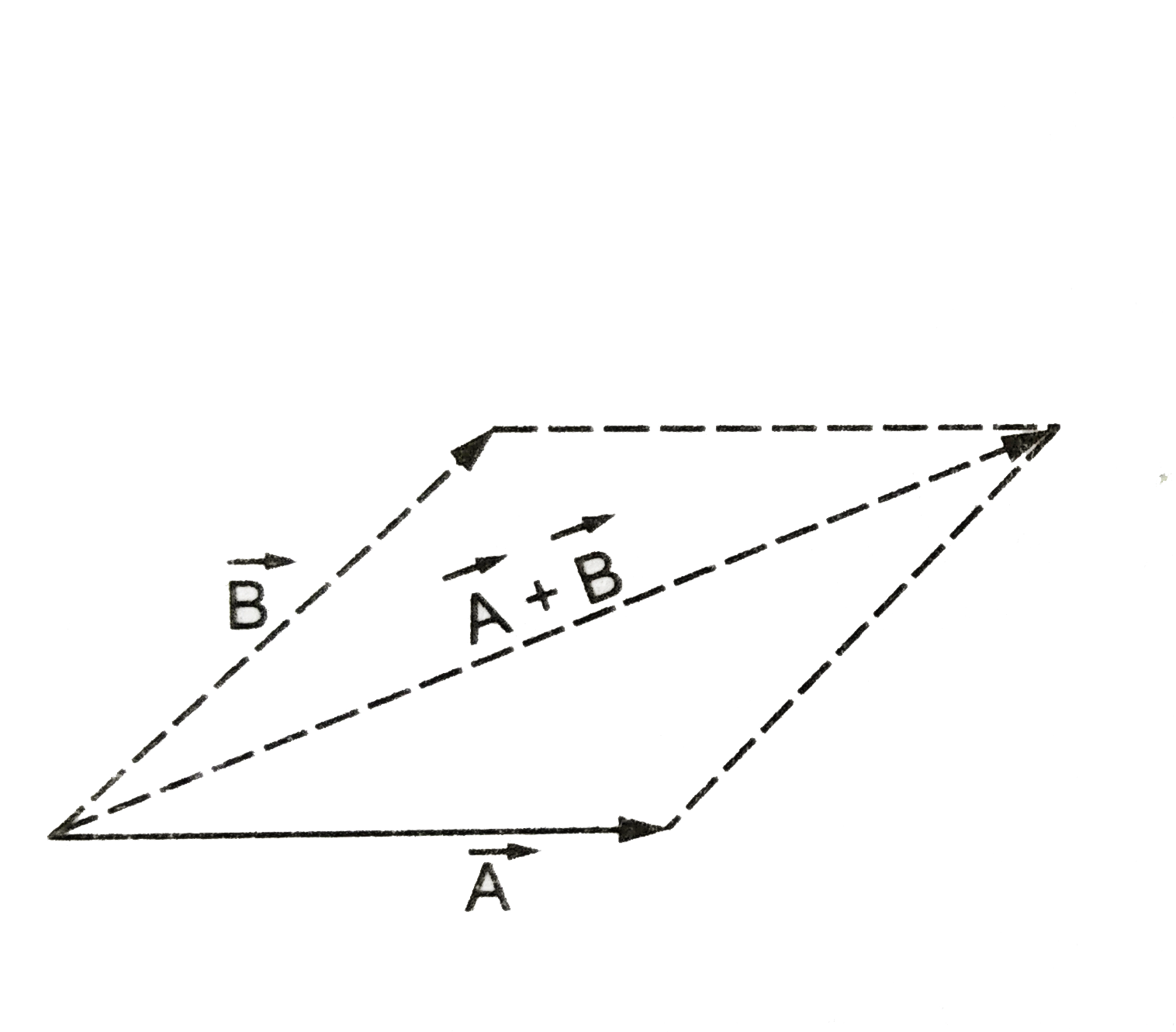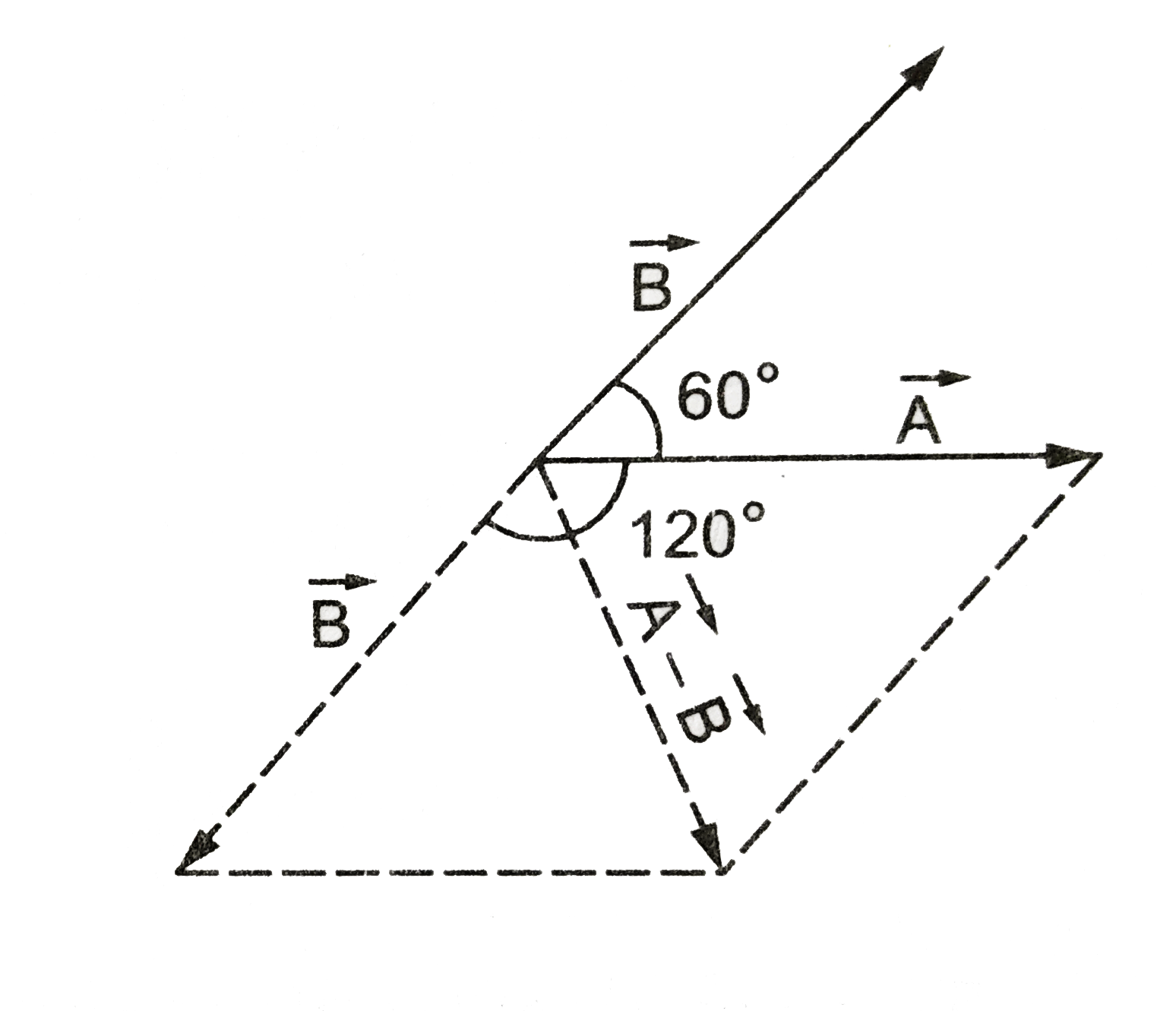A vector has magnitude and direction. Does it have a location in space ? Can it vary with time ? Will two equal vectors a and b at different locations in space necessarily have identical physical effects ? Give examples in support of your answer.
(i) A vector in general has no definite location in space because a vector remains uneffected whenever it is displaced anywhere in space provided its magnitude and direction do not change. Howver a positions vectors has a definite location in space.
(ii) A vector can very with time eg : the velocity vector of an accelerated particle varies with time.
(iii) Two equal vectors at different locations is space do not necessarily have some physical effects. For example two equal forces acting at two different points on a body with can cause the rotation of a body about an axis will not produce equal turning effect.
Similar Questions
A vector has magnitude and direction .Does it have a location in space ? Can it vary with time ? Will two equal vectors a and b at different locations in space necessartly have identically physical effect ? Give example in support of your answer .
View SolutionA vector has magnitude and direction (i) Does it have a location in the space ? (ii) Can it vary with time ? (iii) Will two equal vectors →a and →b different locations in space necessarily have identical physical effects ? Give examples in support of your answer.
View SolutionCan two equal vects →aand→b at different locations in space necessarilly have identical physical effects ?
View SolutionA vector has magnitude and dirction 9i) Does it have a olocition in the sparce ? (ii) Can it vary with time ? (iii) Will two equal vectors →a and vec b different locations in sparc necessarily have identical phusical effects ? Give examples in support of your answer.
View SolutionAnswer the following :
(i) A vector has magnitude & direction. Does it have a fixed location in space? Can it vary with time.
(ii) Will two equal vectors →a & →b at different locations in space necessarily have identical physical effects?
(iii) Can three non zero vectors, not in one plane, give a zero resulatnt? Can four vectors do ?
(iv) Can a vector have zero magnitude if one of its components is not zero?
View SolutionAnswer the following :
(i) A vector has magnitude & direction. Does it have a fixed location in space? Can it vary with time.
(ii) Will two equal vectors →a & →b at different locations in space necessarily have identical physical effects?
(iii) Can three non zero vectors, not in one plane, give a zero resulatnt? Can four vectors do ?
(iv) Can a vector have zero magnitude if one of its components is not zero?
View SolutionTwo physical quantities are having the same dimensions. Should their units be necessarily the same? Give an example supporting your answer.
View SolutionTwo vectors of equal magnitude 5 unit have an angle 600 between them. Find the magnitude of a the sum of the vectors and b the difference of the vectors.
 .
.  .
.
View SolutionTwo vectors of equal magnitude of 5 unit have an angle 600 between them. Find the magnitude of (a) the sum of the vectors and (b) the difference of the vectors.
 .
.  .
.
View Solutioncan a physical quantity having both magnitude and direction be a vector?
View Solution
